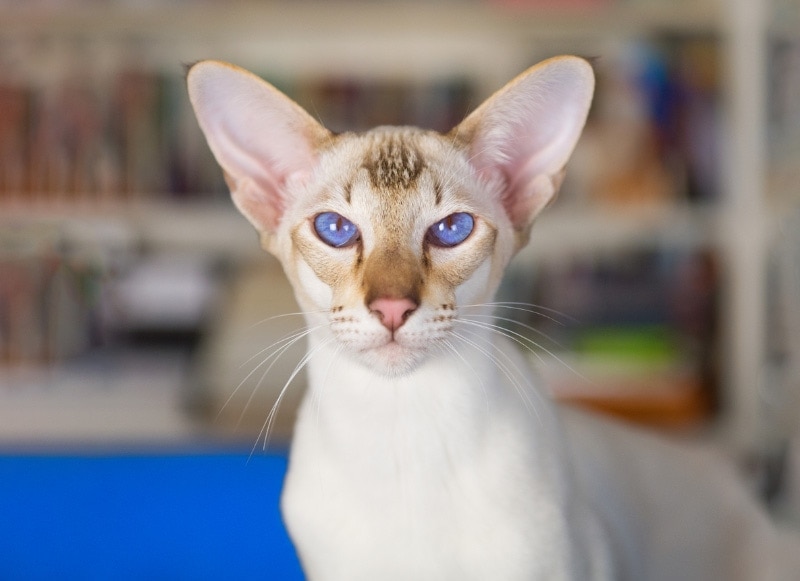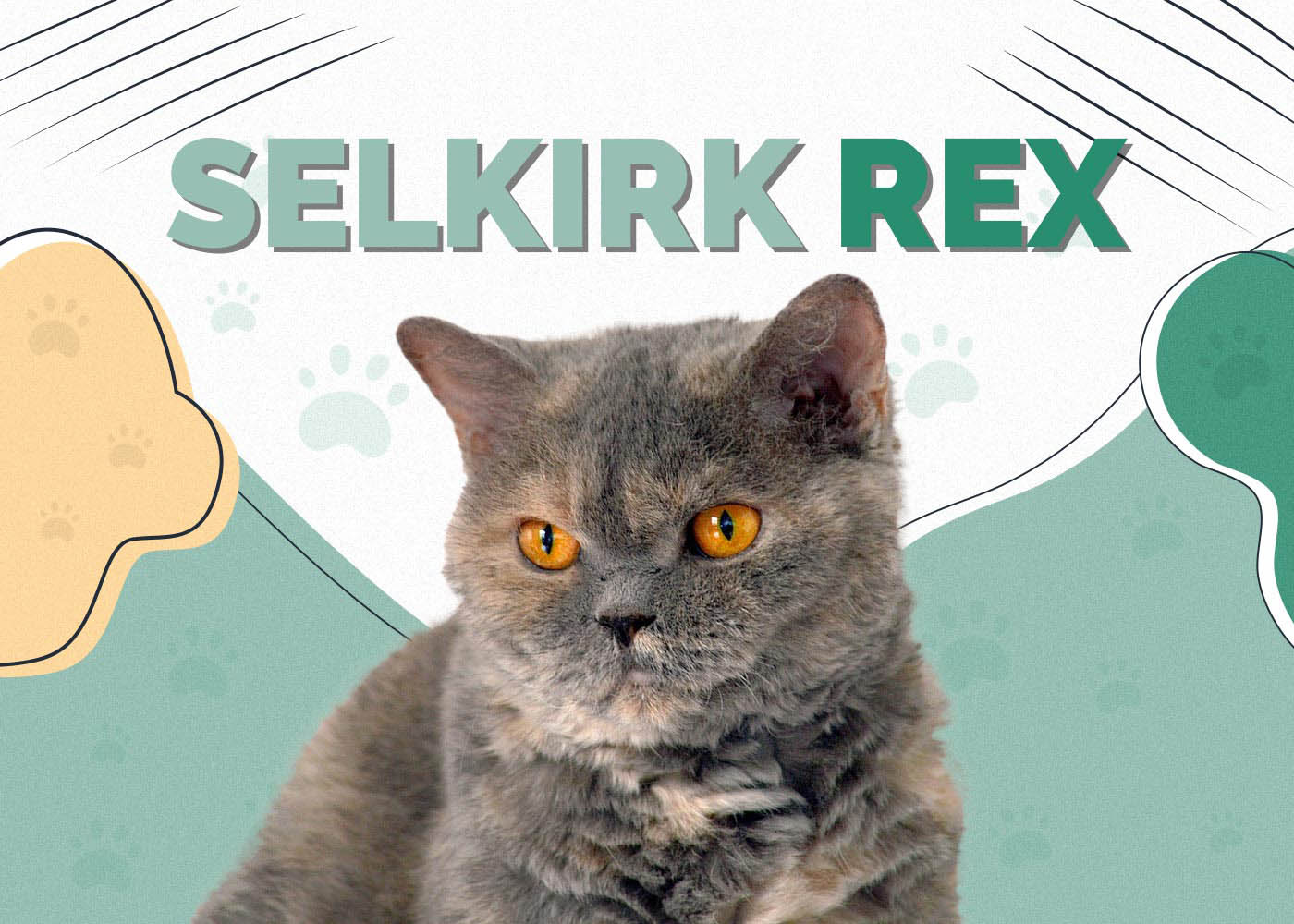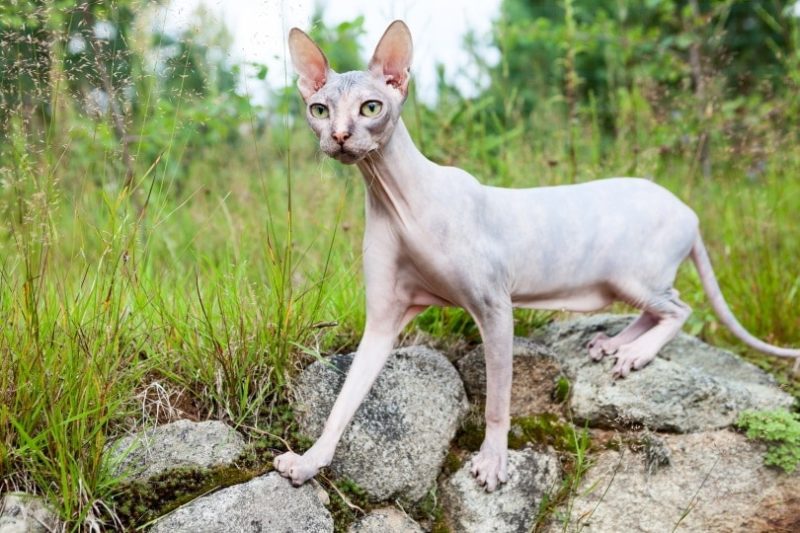Tuxedo Cats: Breed Info, Pictures, Temperament, & Traits

Updated on

| Height: | 9—10 inches |
| Weight: | 6—16 pounds |
| Lifespan: | 12—20 years |
| Colors: | Black & white |
| Suitable for: | Families, companionship, multi-pet households |
| Temperament: | Talkative, playful, affectionate, intelligent |
Tuxedo cats aren’t an official breed but rather a very distinct color and pattern of cats that can occur across many different breeds. Tuxedo cats stand out from the crowd not only with their elegant black and white patterning that resembles formal wear, but they also possess ample personality, making them worthy of their own description!
Each Tuxedo cat displays their individual style with some sporting stylish “spats” in the form of white booties. Others are attending a masquerade with a “masked’ variation of a white stripe across the face. Some dashing felines also show off some charming facial hair with patterning resembling mustaches. While this patterning is likened to traditional gentlemen’s attire, Tuxedo cats defy gender norms, with female Tuxies just as common (and handsome!) as males.
Tuxedo cats may not be their own breed, but they certainly have made a name for themselves with their unique traits. Read on to delve into what makes Tuxies such special cats.
 Tuxedo Cat Kittens
Tuxedo Cat Kittens
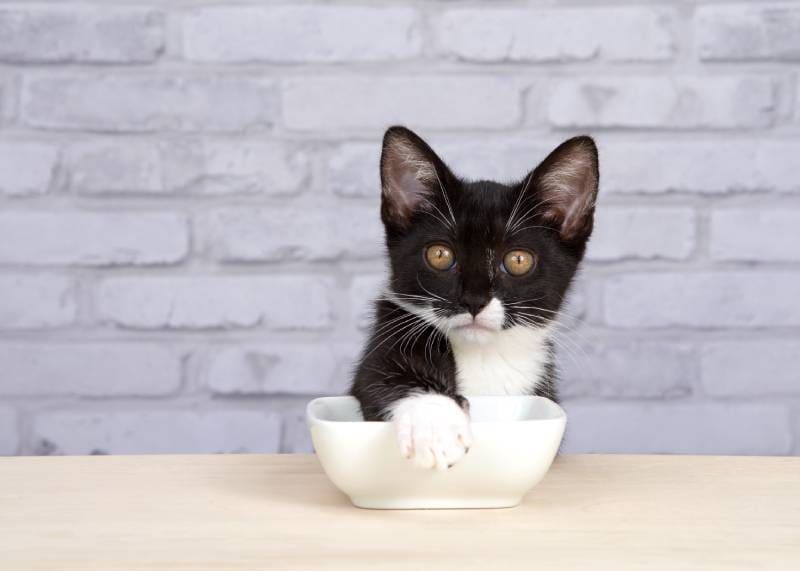
The price of a Tuxedo cat varies greatly depending on the breed. The Tuxedo coloration can occur across many breeds, from common domestic shorthairs to famously expensive breeds like Maine Coons and Norwegian Forest Cats.
Remember to check with your local shelters for Tuxedos looking for loving homes.
 3 Little-Known Facts About the Tuxedo Cat
3 Little-Known Facts About the Tuxedo Cat
1. Tuxedo Cats are famous
Tuxedo Cats are exceptionally well known—both in the media and throughout history. In fact, 70% of cats depicted in ancient Egyptian lore are Tuxies. Tuxedo Cats continued to be popular with famous individuals such as Shakespeare, Beethoven, Isaac Newton, and Bill Clinton, all having a Tuxie as a companion.
You will have seen Tuxedo Cats more recently as Sylvester in Looney Toons, Felix the Cat, and Dr Suess’ The Cat In The Hat.
2. They’re serious adventurers
Tuxedo Cats are groundbreaking adventure cats! It’s rumored the first and only cat to scale Mount Everest was a Tuxedo named Roderick. Tuxedos were also ingrained in Viking history, with the first cat to join the “new world”, a Tuxie named Asgerd who accompanied early Viking explorations to North America.
Felicette, a street cat from Paris, remains the only cat to ever go to space. An astronaut and a feminist, Felicette fought to regain her fame after her work was miscredited to a male cat named Felix. A Tuxedo Cat named Buster fought for his country during World War I, joining 17 combat missions with the US Air Force. Shot down from the sky, Buster survived and lived in a German prisoner-of-war camp for the rest of his days.
3. They hold VIP status
Tuxedo Cats are the only cats permitted to enter the Metropolitan Opera in New York. One would like to think the years of record-setting and service Tuxedo Cats have displayed to human history earn them this special VIP status, but it is due to the fact they meet the black-tie dress code of the Opera!
We couldn’t tell you just how many Tuxies have taken advantage of this privilege or how many scruffy moggies have protested not being permitted themselves.
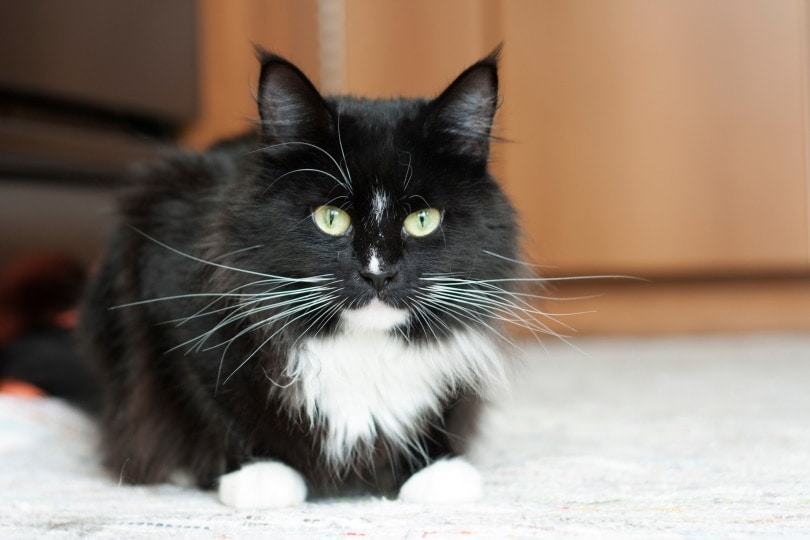
 Health and Conditions 🏥
Health and Conditions 🏥
Since Tuxedo Cats can be observed in many different breeds, potential genetic health concerns will vary depending on their genetics. Some common health conditions for regular domestic cats may occur.
- FIV (Feline Immunodeficiency Virus): Also known as feline aids, this virus can be spread from cat to cat. Most often, spreading is through bites or mating and can be avoided by keeping your cat indoors.
- Cancer: Cancerous cells may be localized and can be removed and cured, while other more aggressive cancers will be degenerative. Cancers can be genetic or due to environmental conditions.
- Diabetes: This condition is more common in overweight cats but can also be purely genetic
- Obesity: many cats are prone to overeating and low activity by nature. Encouraging exercise and monitoring food can control your Tuxedo Cat’s weight. Obesity can lead to secondary health concerns.
- Dental Decal: dental and gum decay is most common in elderly cats due to natural decline.
- Internal Parasites: Some parasites in the digestive system are normal, but numbers can grow out of control. Worm your cat every 3 months to keep parasites at bay.
 Male vs Female
Male vs Female
Tuxedo Cats don’t tend to display personality differences based on gender. Each individual will express their own personality which is usually genetic or totally random.
As a broad generalization, female cats tend to be more reserved and favor a particular human. In comparison, male cats may be more outgoing and confident. If a male cat is intact, then you may see territorial behaviors such as aggression or spraying.
Conclusion
It’s little wonder why Tuxedo Cats have been a popular choice throughout time. They prove time and time again to be highly lovable and adventurous. Getting a Tuxedo Cat gives you all the joys of a relaxed, low-maintenance cat, with extra perks of a sense of loyalty and affection that rivals a dog.
The breed of Tuxedo Cat you choose to get may vary on what exactly you are looking for in your new cat. But you can be assured that a Tuxedo Cat will provide you with endless love and companionship.
Featured Image Credit: Kill_Baal, Shutterstock
 Tuxedo Cat Kittens
Tuxedo Cat Kittens 3 Little-Known Facts About the Tuxedo Cat
3 Little-Known Facts About the Tuxedo Cat Health and Conditions 🏥
Health and Conditions 🏥